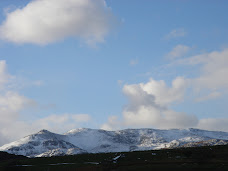Peter Dickinson
On August 8, 2008, Russian forces began the invasion of Georgia, marking the start of Europe’s first twenty-first century war. The conflict itself was over within a matter of days, but the repercussions of the Russo-Georgian War continue to reverberate thirteen years on, shaping the wider geopolitical environment.
The international reaction to Russia’s military campaign in Georgia was to prove remarkably muted, with Moscow suffering few negative consequences. On the contrary, EU leaders led calls for a ceasefire that appeared to favor Russian interests, while the US under the new Obama administration was soon calling for a reset in relations with the Kremlin.
Understandably, many in Moscow interpreted this accommodating approach as an informal invitation for further acts of aggression in Russia’s traditional sphere of influence. Six years after the Russo-Georgian War, Russia embarked on a far more comprehensive military campaign against Ukraine, where Moscow continues to occupy Crimea and large swathes of eastern Ukraine’s Donbas region.
The 2008 Russo-Georgian War is now widely recognized as a landmark event in the transition from the era of post-Soviet cooperation between Russia and the West towards today’s Cold War climate. The Atlantic Council invited a range of experts to share their views on the legacy of the conflict and its impact on the international security environment.
John Herbst, Director, Eurasia Center, Atlantic Council: Thirteen years ago, Europe experienced major power aggression for the first time since Hitler’s defeat in 1945. Russian troops attacked and defeated Georgian forces in a short war that Moscow and its proxies in South Ossetia provoked. The reaction of the West was slow and weak. French President Nicolas Sarkozy negotiated ceasefire terms that Moscow largely violated without consequence. The Kremlin learned that the West preferred to ignore or at least minimize Russian bad behavior in the so-called Near Abroad.
Moscow applies this lesson in Georgia today as it regularly moves the demarcation line between South Ossetia and the rest of Georgia a few meters further into the country. Russia also applied the lessons of 2008 in Crimea and Donbas. It took the West some time, and the July 2014 shooting down of the MH17 passenger airliner, to impose serious sanctions on Moscow for its aggression in Ukraine.
If US President Joe Biden would like to demonstrate the fresh resolve in dealing with Moscow that he promised as a candidate, he should announce contingency sanctions that the US will apply the next time Moscow “adjusts” that internal demarcation line in Georgia
















No comments:
Post a Comment